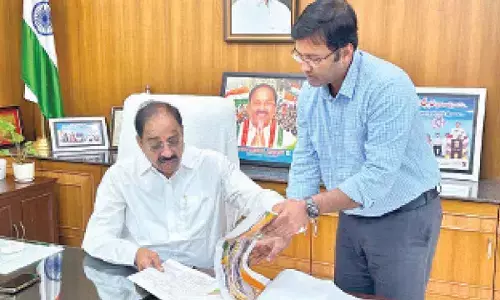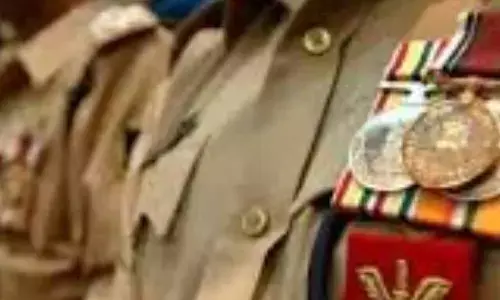Lanka Tamils win battle of ballot

Sri Lanka Tamils Win Battle of Ballot. The landslide victory of Tamils in their heartland in the north of Sri Lanka in provincial polls held on Saturday was historic both politically and ethnically. Tamils Win Battle of Ballot In Sri Lanka, Sri Lanka Tamils,
With the return of Tamils, the real challenge and test will begin now. The challenge is the TNA is likely to press for more autonomy, and the test is for the Rajapaksa government
The landslide victory of Tamils in their heartland in the north of Sri Lanka in provincial polls held on Saturday was historic both politically and ethnically. The Tamil National Alliance (TNA), the political face of the dreaded Tamil Tigers who had fought a 26-year war for a separate country (Tamil Eelam) until their movement was ruthlessly crushed by the Sinhalese-majority government in 2009, secured 30 seats in the 38-member Provincial Council.
While President Mahinda Rajapaksa’s ruling coalition United People’s Freedom Alliance (UPFA) won 7 seats, a Muslim party grabbed the other one seat. It was the first local poll held in the troubled North in 25 years, which means as long as the Tamil insurgency had been rocking the province, the successive governments in Colombo had never dared to touch that area.

The 2009 crackdown by President Rajapaksa on the Liberation Tigers of Tamil Eelam (LTTE) had left deep scars on the island nation’s polity and psyche. Allegations of Lanka Army’s atrocities against Tamil civilians in the North had invited international condemnation and prompted an inquiry by the United Nations Human Rights Commission.
In fact, India’s vote against Sri Lanka at the UN Human Rights Council in Geneva, in March 2012 had widened the differences between the two neighbours over the Tamil issue. Despite invoking the age-old historic, traditional, cultural and ethnic ties between the two countries to dissuade India from siding with the US at Geneva, Colombo couldn’t succeed. On the other hand, Lanka’s appeal had put the Indian government in a quandary because the Tamil issue is both sensitive and emotive on both sides of the Strait of Mannar.
The Indian government was caught in a Catch-22 situation between a regional ally DMK in the coalition government and foreign policy objectives. While the Dravidian parties wanted to express their solidarity with their brethren across the Strait, the Rajapaksa government wanted the UPA government to oppose the US move. In other words, a foreign policy issue had unwittingly become an intra-national matter with global overtones. However, Delhi’s vote against Colombo had not gone too well with the Lanka government which perceives the UPA government as pandering to the regional Tamil interests of DMK and AIADMK parties that vie with each other to play to the gallery at the cost of overall Indian foreign policy towards regional countries. While India stood its ground, like many other countries, against blatant human rights violations by Lanka government forces during their last push to end the Tamil insurgency, the massacres, dubbed ethnic cleansing by Lanka Tamils and voluntary organizations, had sparked a global outcry for independent investigations and punishment of those involved in crimes.
The Rajapaksa government had set up a committee known as the Lessons Learned and Reconciliation Commission Process to study the war crimes allegations. But the government has neither implemented nor taken any convincing and concrete action on the committee’s recommendations, let alone rehabilitate thousands of war victims despite sweet promises of reintegrating the alienated and fractured Tamils. Even if it has initiated some measures, they are painfully slow and half-hearted.
Against this background comes the Tamil triumph in the provincial council, the only one among nine which are supportive of the ruling UPFA coalition. Though the media have dubbed the TNA win a setback to Rajapaksa, he would not have expected anything better than this in the current scenario. He is left with no choice but to work with the Tamil-dominated northern provincial council to prove his democratic credentials and to fulfill his promises of honouring commitments made to Tamils soon after the civil war was over. With the return of Tamils in the heart of Tiger land in a democratic way, the real challenge – and test – will begin now. The challenge is the TNA is likely to press for more autonomy, a demand that goes back to decades which assumed militant proportions during the LTTE sway, and the test is for the Rajapaksa government how far can it go to concede the demand. And, the relations between the province and Colombo will be supervised/monitored by an all-powerful Governor appointed by the President. That means the provincial council’s functioning will be a tight-rope walk. But, it also equally applies to the federal government whose dealings with Tamils will be under close watch by the international community, including the Dravidian parties in Tamil Nadu.
However, a key Tamil leader, CV Wigneswaran, retired Supreme Court judge, who has emerged as the prime candidate to assume charge of Northern Provincial Council as Chief Minister, has struck a conciliatory note saying that the Council will have to work with the government to push for change. “It is important to engage in a constant dialogue with the Sri Lankan government. International intervention will be sought only when talks fail with the government repeatedly,” he said.
Another TNA leader R Sampanthan has stressed that the Alliance is committed to the full implementation of the 13th Amendment of Sri Lanka Constitution. It was the result of 1987 Indo-Lanka Accord under which “a political solution that is reasonable, workable and durable” should be found to resolve the Tamil issue once and for all. It is premature to say whether Colombo would revive the spirit of peace pact; but it is important for Tamil leaders to engage the Rajapakse government in a meaningful dialogue to achieve their goals.
Since India was the main peace broker in 1987, it can work towards a rapprochement between Colombo and the provincial council. At the same time, Delhi also can extend a helping hand to the Tamils who constitute 14 per cent of the 20-million population and the Rajapaksa government in sorting out their differences over key issues like land without giving the impression that it is interfering in their internal affairs. In other words, Delhi should seize the opportunity arising out of the Tamil success in Lanka North to re-establish closer contacts and cement the fractured ties between the two countries. In the long run, this strategy will pay off as both China and Pakistan have been making forays into Lanka at our cost.














